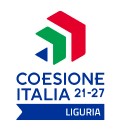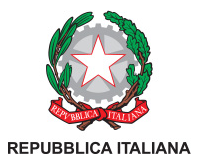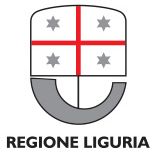Financial Educator



KITS AND RESOURCES FOR THE FINANCIAL EDUCATOR
Financial education is an essential skill for successfully navigating the complex world of the modern economy, and the financial educator plays a crucial role in this field. EducazioneFinanziaria.biz offers a range of tools and resources specifically designed for financial educators, facilitating their training work and promoting greater financial awareness among students, adults, and communities. These tools not only enrich the educational offering but also make financial learning more accessible, engaging, and applicable in everyday life.
Financial Educators



In Informative Seminars
The products of EducazioneFinanziaria.biz are perfect for use during training seminars, making the educational experience dynamic and interactive. Financial educators can enrich their presentations with financial quizzes and games, engaging the audience and encouraging active participation. Our thematic cards also provide practical insights for exploring complex topics, making seminars not only informative but also fun and easily understandable for everyone.
In Training Courses
During training courses, financial educators can use our books and educational tools to create a structured and comprehensive learning path. Interactive resources such as gamification and quizzes offer a practical and engaging approach, ideal for keeping participants’ attention and reinforcing acquired knowledge. The courses thus become immersive learning experiences, providing useful and applicable financial skills for everyday life.
Where to Use Our Products

School Programs
Financial educators can integrate our tools into existing school programs, offering teachers ready-to-use resources for economics and finance lessons. The books, educational cards, and games can be used to develop a complete curriculum covering all aspects of financial education, from basic literacy to advanced personal finance management. These tools make teaching more interactive and engaging, helping students develop financial skills that will last a lifetime.

Adult Education Programs (Courses and Coaching)
Our tools are perfect for financial education programs aimed at adults, whether they are evening courses, corporate programs, or community initiatives. Educators can use manuals and educational cards to teach adults the skills necessary to effectively manage their finances. Simulations and games can be used to make learning more accessible and less intimidating, helping adults better understand their finances and make more informed decisions.

Workshops and Seminars
Financial workshops and seminars are ideal contexts for using our educational products. Educators can use behavioral cards and simulation games to create interactive learning sessions that actively engage participants. These tools facilitate the understanding of financial concepts and encourage active participation, making workshops and seminars more effective and memorable. Self-assessment tests can be used at the beginning and end of the sessions to evaluate participants' progress and provide personalized feedback.
Do you want a customized solution or personalized product?
Our Products for the Financial Educator
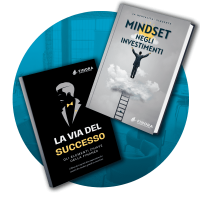
Books
Our books and manuals are essential resources for any financial education program. Written by industry experts, these texts cover a wide range of topics, from household economics to debt management, responsible investing to retirement planning. Each book is designed to be used in both formal and informal educational settings, offering easily understandable and applicable content. These materials are ideal for courses, seminars, and workshops, providing educators with a solid theoretical foundation on which to build practical and stimulating lessons.
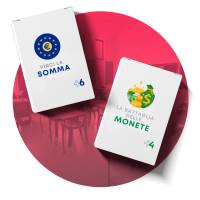
Educational and Behavioral Cards
Educational and behavioral cards are versatile tools that allow financial educators to introduce and explain complex financial concepts in an interactive and visual way. The cards can be used to stimulate discussions, create educational games, or facilitate practical exercises. Behavioral cards, in particular, are useful for exploring psychological traps and cognitive biases that often influence financial decisions. These tools help make lessons more dynamic and engaging, improving students' understanding and awareness.
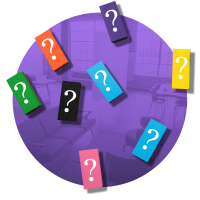
Financial Self-Assessment Tests
Financial self-assessment tests are diagnostic tools that educators can use to assess their students' level of knowledge and awareness. These tests help identify strengths and gaps in financial skills, allowing educators to tailor lessons to the specific needs of the group. The test results can be used to create personalized educational plans, monitor progress, and provide targeted feedback to students, enhancing the effectiveness of the learning process.
The best choice for you
Frequently Asked Questions
Financial education is the process of learning and understanding how to manage money effectively. It includes knowledge about saving, investing, debt management, budgeting, and long-term financial planning. The goal is to develop skills that enable individuals to make informed and responsible financial decisions.
Financial education is essential because it helps people better manage their money, avoid financial pitfalls, and plan for the future. Good financial knowledge can prevent issues such as excessive debt, lack of savings for emergencies or retirement, and improve overall economic well-being.
Everyone, regardless of age, social status, or income, can benefit from financial education. Young people can learn to manage their first earnings and savings, while adults can enhance their financial planning and investment skills.
What are the main topics covered in financial education?
Financial education covers a wide range of topics, including:
• Budgeting: How to create and maintain a budget to manage income and expenses.
• Saving: The importance of saving money and strategies to do so.
• Investing: The basics of investing and how to grow your capital over time.
• Debt Management: How to avoid, manage, or reduce debt.
• Planning for the future: How to financially prepare for future events, such as retirement or buying a house.
There are several resources available to improve financial education, including books, online courses, workshops, and financial advisors. Additionally, many banks and organizations offer free financial education programs.
Financial education provides the knowledge and skills to manage money independently, while financial consulting involves receiving personalized advice from a certified professional registered in the financial advisors’ registry.
A good level of financial education contributes to greater economic security and reduces stress related to financial problems. Knowing how to manage money enables more conscious decision-making, improving quality of life and the ability to achieve financial goals.

